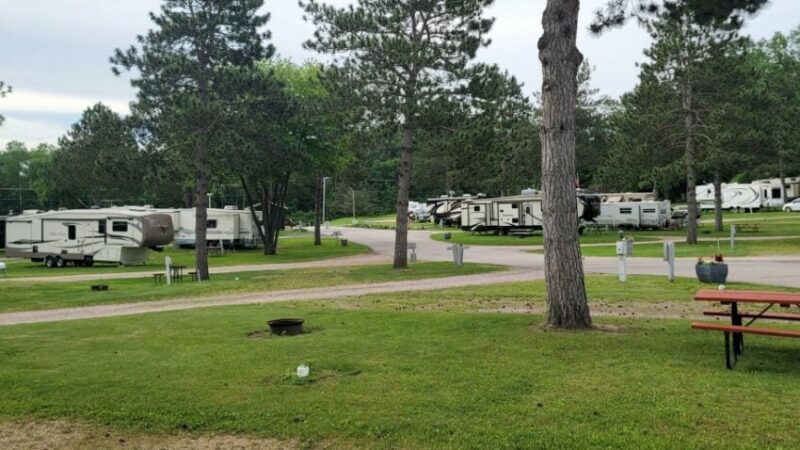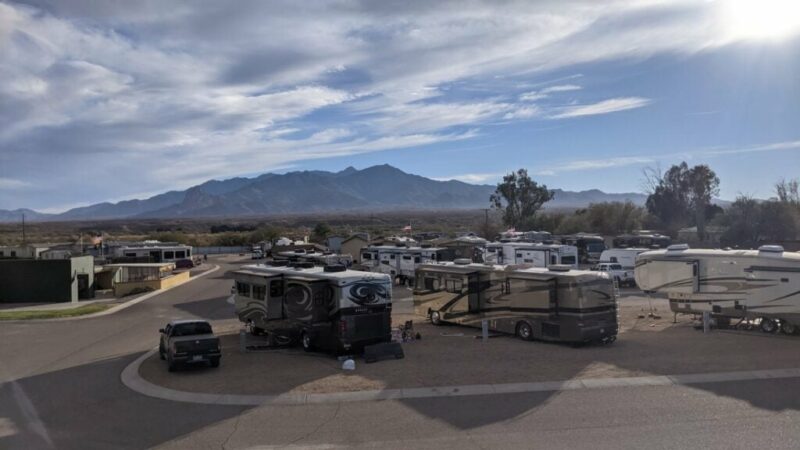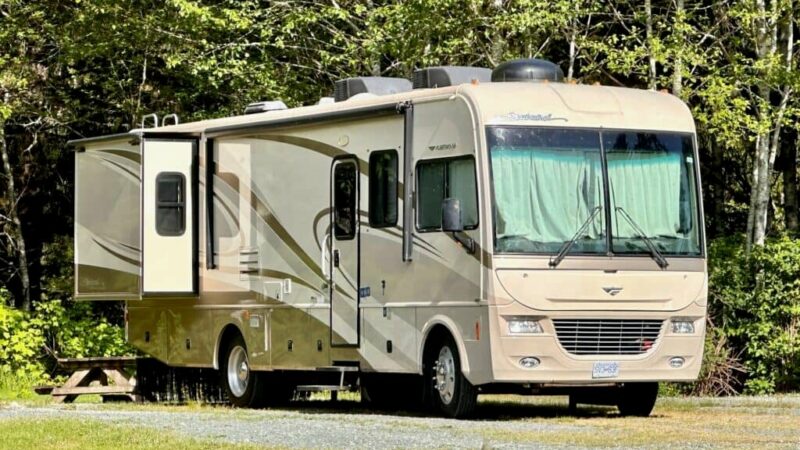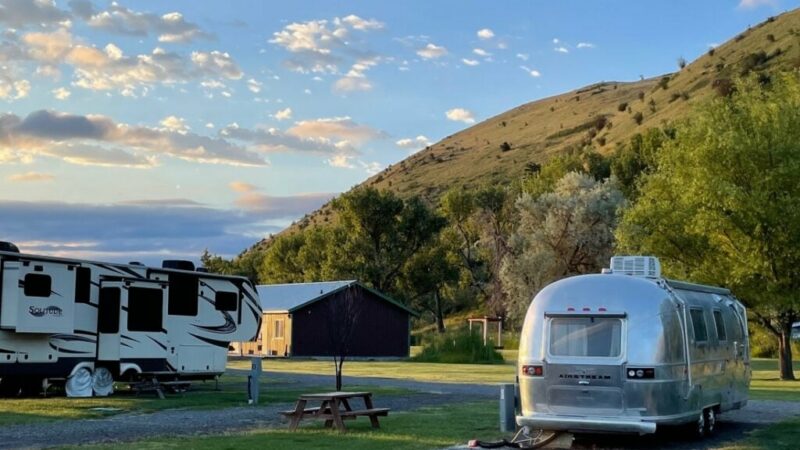Can You Get Carbon Monoxide Poisoning From Propane In Your RV?
RV Carbon Monoxide Safety Tips You Should Know
No matter where you live, there are a few household dangers you should be aware of, and carbon monoxide poisoning should be one of your top concerns. RVers are at an exceptionally high risk because of their small living space and their multitude of propane-powered appliances. Carbon monoxide poisoning from propane is a real danger.
Carbon monoxide is an odorless gas that is created when you burn any type of fuel, including propane. If it builds up in your living space, it can lead to serious health problems and even death. This gas is nearly impossible to detect with your eyes or nose, so you’ll need to rely on other types of monitors to alert you to the issue.
Propane is a fairly safe and reliable form of fuel to use in an RV, but it does come with some risk factors, including the potential for carbon monoxide poisoning. In order to keep yourself safe, follow along with the tips below so you can learn the symptoms of carbon monoxide poisoning, how you can prevent it, and how to properly use propane within an RV.
Carbon monoxide poisoning symptoms
First things first, you should know some of the symptoms that come from inhaling too much carbon monoxide. Because you won’t be able to see or taste this gas, your first sign of warning might come from your own body’s reaction.
If you begin to develop any of the following symptoms, you should immediately vacate your RV in case there is a carbon monoxide buildup. The Mayo Clinic states that some of the possible warning signs include:
- Headache
- Weakness/fatigue
- Dizziness
- Nausea
- Shallow breath
- Disorientation
- Blurry vision
- Vomiting
- Fainting
Many of these symptoms are synonymous with the flu, and some people mistake carbon monoxide poisoning for a regular illness. If these warning signs all appear suddenly though, you might be in serious danger. Withered household plants can also be a sign of carbon monoxide buildup.
The risks are even higher if you are asleep or heavily intoxicated. If you stay in the RV and continue to breathe in the gas, it can cause permanent brain damage and even death. This is why propane alarms are so important; they can wake you up before it’s too late.
It’s important to take this hazard seriously because it only takes a few minutes for the situation to become truly dangerous.
Propane and carbon monoxide poisoning
Carbon monoxide can be created by burning pretty much any type of fuel, including propane, wood, charcoal, and gasoline. So, any type of heater you use within an RV can potentially create this deadly gas. However, propane is one of the primary fuel sources for vehicles like this, so that’s what we’ll be focusing on today. Most RVs are equipped with propane stoves, heaters, and other appliances.
When everything is working properly, propane will cleanly burn and separate into carbon dioxide and water vapor. These are both quite harmless in small quantities, and propane appliances/heaters can generally burn off the excess without issue.
But unfortunately, things don’t always work perfectly. If your propane heater begins to leak and there’s no spark to burn it off, carbon monoxide can start to build up within your living space. The risk factor increases if you have poor ventilation or if the pilot light on the burner goes off.
If you’re worried about the performance of your propane burner, take a look at the color of the flame. If everything is working properly, the flame should be a clear, bright blue. But if you see another color such as red or yellow, you might have a problem. If the burner starts to smoke or smell strange, this is another warning sign.
Any of these symptoms could indicate that the fuel is not burning cleanly and it might mean that you have a carbon monoxide buildup on your hands. Immediately shut off the appliance, open up your RV and step outside so you can get some fresh air.
Another sign of a potential propane leak is the smell of rotten eggs. Although propane itself doesn’t have a smell, companies will add a chemical to the propane to give it this smell to help alert you of a leak.
Don’t take any chances. If you suspect that carbon monoxide poisoning may be coming from your propane appliances, you should immediately get some distance from the situation. Leaky propane tanks are also a fire hazard and you don’t want to risk creating a spark.
Safety tips and preventative measures
There are several things you can do to keep yourself safe from carbon monoxide poisoning that comes from propane. Most of the time, this fuel source is quite safe to use within an RV. But if you take a few extra steps, you’ll be able to avoid issues and keep yourself safe.
Regularly inspect tanks and appliances
For starters, you should regularly examine your propane tanks and appliances for signs of damage. There are several parts that could malfunction, such as the valves, hoses, and regulators. If there are any cracks or dings in the tank itself, that’s also a major cause for concern.
It’s best to get a certified RV technician for this job, but you can visually inspect each of these elements by yourself. Any obvious damage should be dealt with right away.
Replace old tanks on schedule
Speaking of propane maintenance, you should replace your old tanks once they reach their requalification date. Well-maintained propane tanks are generally safe to use for 12 years. Once they reach this date, they will need to be inspected by professionals.
After this period, you can continue to use them for five years if they pass the test. Once this time expires, it’s time to switch out to a new tank. Of course, you can also replace tanks more frequently if you suspect a problem.
Install carbon monoxide detectors
One of your best lines of defense against carbon monoxide poisoning is an early detection system. There are lots of carbon monoxide detectors on the market, and most RVs will come with a pre-installed set.
If you need to buy or replace these alarms, this Kidde Carbon Monoxide Detector is a great option. Just make sure you replace the batteries on schedule so it will work when you need it to.
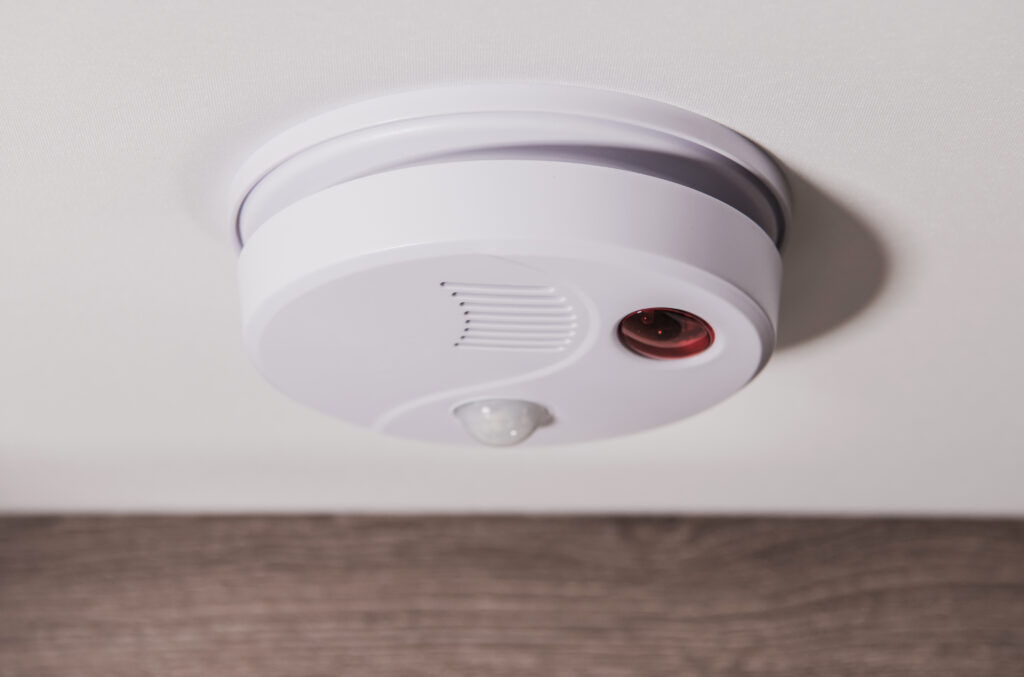
Ventilate your RV
A healthy amount of airflow can minimize the risk of carbon monoxide poisoning. It will take longer for the gas to build up if you use proper ventilation throughout your RV. But trapped, stagnant air is much more dangerous. Keep your vents open whenever possible, and open up your windows to let in a nice breeze.
Always keep propane tanks upright
Proper propane storage will also help you avoid leaks and carbon monoxide poisoning. For instance, you should always store tanks in an upright position because this is the way they were designed to operate. You can create uneven pressure if you lay them on their sides or upside down.
It’s also important to keep them within a safe temperature range (below 120 degrees Fahrenheit). If you’re camping in a particularly hot area, consider bringing the tanks inside to cool them down.
Use propane appliances outdoors (whenever possible)
It’s generally quite safe to use propane heaters and stoves inside because they are designed to burn cleanly. But if you want to take some extra safety precautions, try to take your propane appliances outside whenever possible. For instance, you’ll lower the risk of carbon monoxide buildup if you use a propane stove outside rather than in the RV kitchen. Plus, cooking outside will reduce the amount of moisture and odors in your vehicle!
Carbon monoxide poisoning from propane is a real danger that RVers need to be aware of. But as long as you take the right precautions and have an alert system in place, you should be able to stay safe.
Get tips from other RVers
One of the best parts about RVing is engaging with the community of traveling enthusiasts. iRV2 forums allow folks to chat with other RVers online, and get other perspectives on everything RVing, including products, destinations, RV mods, and more.
Related articles:
- What Does An RV Propane Gas Leak Smell Like?
- Don’t Die of Carbon Monoxide Poisoning in Your RV
- 7 Things You Need To Know About Propane Safety
The post Can You Get Carbon Monoxide Poisoning From Propane In Your RV? appeared first on RV LIFE.



